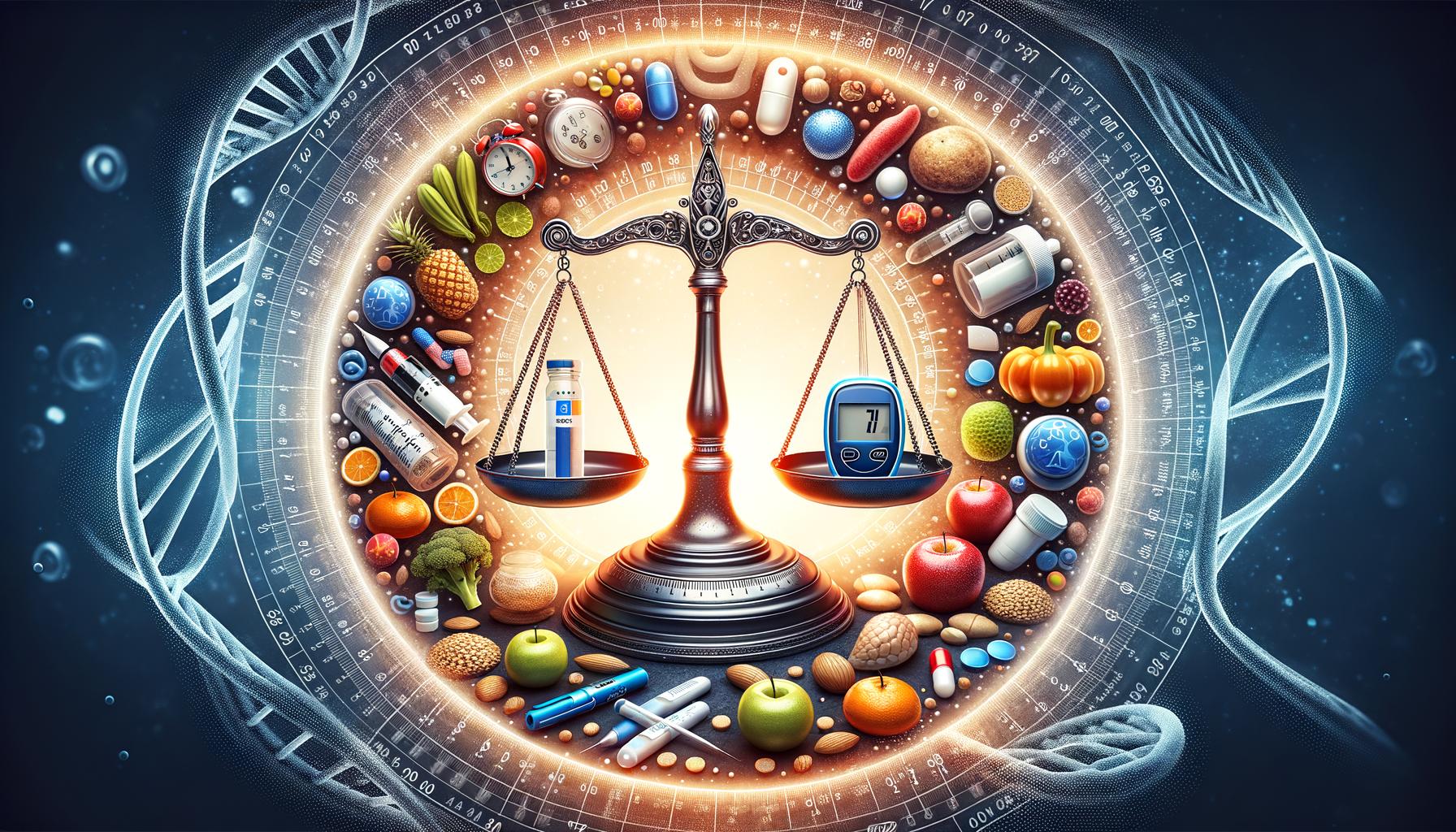Understanding Diabetes and Its Impact
Diabetes is a chronic condition that affects millions of people worldwide. It occurs when the body cannot effectively use the insulin it produces, or when the pancreas does not produce enough insulin. This leads to elevated blood sugar levels, which can cause various health complications if not managed properly. Understanding the impact of diabetes is crucial for effective management and treatment.
There are two main types of diabetes: Type 1 and Type 2. Type 1 diabetes is an autoimmune condition where the body’s immune system attacks insulin-producing cells. Type 2 diabetes, which is more common, is often associated with lifestyle factors such as diet and physical activity. Both types require careful management to prevent complications.
The impact of diabetes extends beyond physical health. It can affect mental well-being, leading to stress and anxiety about managing the condition. Moreover, diabetes can strain relationships and impact social life due to dietary restrictions and the need for regular monitoring. Understanding these aspects is essential for comprehensive diabetes management.
Dietary Approaches to Managing Diabetes
Diet plays a pivotal role in managing diabetes. A well-balanced diet can help maintain healthy blood sugar levels and prevent complications. People with diabetes are often advised to follow a diet rich in fruits, vegetables, whole grains, and lean proteins. These foods provide essential nutrients without causing spikes in blood sugar levels.
Carbohydrate counting is a common technique used by individuals with diabetes to manage their blood sugar. By keeping track of carbohydrate intake, they can better predict how different foods will affect their blood sugar levels. Additionally, choosing complex carbohydrates over simple sugars can help maintain stable blood sugar levels.
Incorporating healthy fats, such as those found in nuts, seeds, and avocados, can also be beneficial. These fats can improve heart health, which is a concern for many people with diabetes. Overall, a balanced diet tailored to individual needs can significantly enhance diabetes management.
Exercise and Physical Activity
Regular physical activity is another cornerstone of effective diabetes management. Exercise helps lower blood sugar levels and increases insulin sensitivity, making it easier for the body to use glucose effectively. It also aids in weight management, which is particularly important for individuals with Type 2 diabetes.
Different types of exercise can be beneficial, including aerobic activities like walking, cycling, and swimming. Strength training exercises, such as lifting weights, can also improve muscle mass and enhance glucose uptake. It’s important for individuals to find activities they enjoy to ensure consistency and long-term adherence.
Before starting any exercise regimen, it’s advisable to consult with a healthcare professional to tailor a program that meets individual needs and capabilities. Regular physical activity, combined with a balanced diet, can significantly improve diabetes management and overall health.
Medication and Insulin Therapy
For many individuals with diabetes, medication and insulin therapy are essential components of treatment. Type 1 diabetes requires insulin therapy since the body cannot produce insulin naturally. Insulin can be administered through injections or an insulin pump, allowing for precise control of blood sugar levels.
Type 2 diabetes may be managed with oral medications that help the body use insulin more effectively or stimulate insulin production. In some cases, insulin therapy may also be necessary. It’s crucial for individuals to work closely with their healthcare providers to determine the most appropriate medication regimen.
Monitoring blood sugar levels regularly is vital to assess the effectiveness of medication and insulin therapy. This allows for timely adjustments to treatment plans, ensuring optimal blood sugar control and reducing the risk of complications.
Innovations and Future Directions in Diabetes Treatment
The field of diabetes treatment is continually evolving, with new innovations and technologies offering promising advancements. Continuous glucose monitors (CGMs) provide real-time data on blood sugar levels, allowing for more precise management and reducing the need for frequent finger-prick tests.
Artificial pancreas systems, which automatically adjust insulin delivery based on blood sugar readings, are another exciting development. These systems aim to mimic the body’s natural insulin regulation, offering improved blood sugar control and quality of life for individuals with diabetes.
Research into new medications and therapies is ongoing, with a focus on improving insulin sensitivity and reducing the risk of complications. As these innovations continue to develop, they hold the potential to transform diabetes management and enhance the lives of those affected by this condition.




Leave a Reply